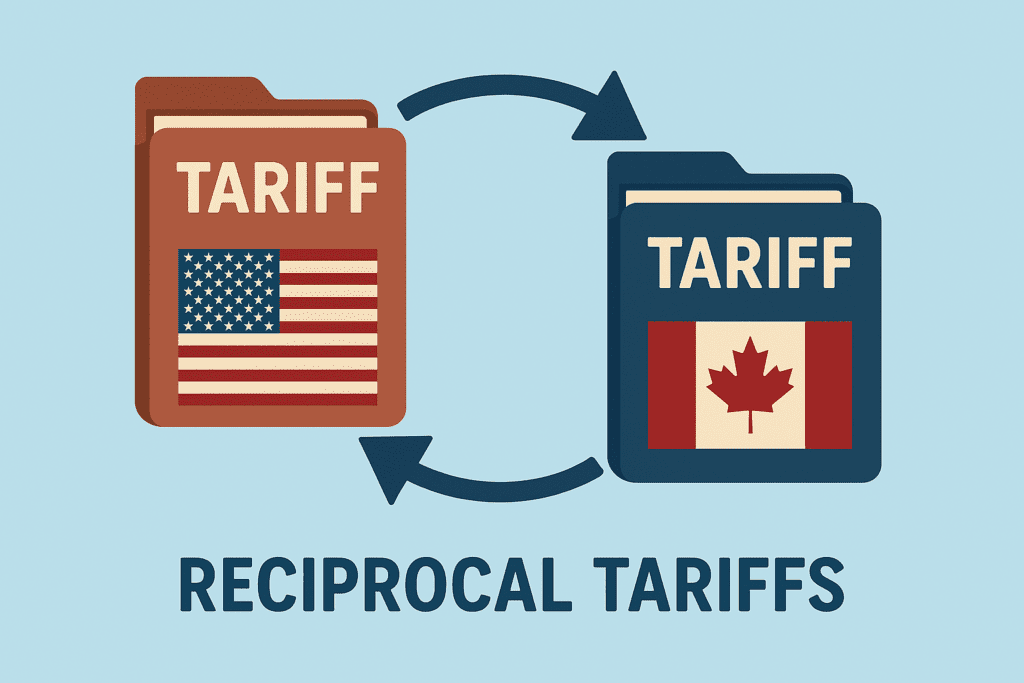Reciprocal Tariffs: A Guide to Trade Equality

Discover the intricacies of reciprocal tariffs and their impact on international trade. Learn how these agreements shape global economic relations.
Trending News Fox, Digital Desk Team, Kolkata
Edited by Saibal Bose
Friday, 4 April 2025
Reciprocal Tariffs: A Guide to Trade Equality
What Are Reciprocal Tariffs?
Reciprocal tariffs are trade policies. In these policies, one country imposes tariffs (taxes on imports) that match those imposed by a trading partner. This strategy ensures fairness in international trade. It levels the playing field and encourages negotiations to reduce trade barriers.
How Reciprocal Tariffs Work
Country A imposes a tariff on goods imported from Country B. In response, Country B may impose an equivalent tariff on goods from Country A. The goal is to encourage fair trade practices. It aims to protect domestic industries. It also sometimes serves as a bargaining tool in trade negotiations.
Benefits of Reciprocal Tariffs
- Encourages Fair Trade – Ensures that no country has an undue advantage due to lower tariffs.
- Protects Domestic Industries – Shields local businesses from excessive foreign competition.
- Promotes Negotiation – Encourages countries to reach agreements on reducing tariffs.
- Reduces Trade Deficits – Helps balance trade between nations by discouraging one-sided advantages.
Challenges and Criticism
- Trade Wars – Reciprocal tariffs can escalate tensions and lead to prolonged trade disputes.
- Increased Costs – Higher tariffs can lead to increased prices for consumers and businesses.
- Market Uncertainty – Sudden tariff changes can disrupt supply chains and international investments.
Real-World Examples
- US-China Trade War: The U.S. imposed tariffs on Chinese goods, and China responded with equivalent tariffs.
- EU and U.S. Steel Tariffs: The U.S. imposed tariffs on steel imports from the EU, prompting the EU to retaliate with similar measures.
- Canada-U.S. Dairy Tariffs: Both nations have implemented reciprocal tariffs on dairy and agricultural products over trade disputes.
FAQ on Reciprocal Tariffs
1. How do reciprocal tariffs affect consumers?
Reciprocal tariffs can lead to higher prices on imported goods, impacting consumers who rely on affordable foreign products.
2. Do reciprocal tariffs always lead to trade wars?
Not necessarily. While they can escalate tensions, they are often used as a negotiation tool to reach fair trade agreements.
3. Can reciprocal tariffs help small businesses?
Yes, they can help protect small businesses from being undercut by cheaper foreign imports.
4. What industries are most affected by reciprocal tariffs?
Manufacturing, agriculture, and technology industries often face the biggest impact due to the high volume of international trade.
5. Are there alternatives to reciprocal tariffs?
Yes, trade agreements, diplomatic negotiations, and economic alliances can help resolve trade imbalances without imposing tariffs.
Tags: #TradePolicy #ReciprocalTariffs #GlobalTrade #Economics #Tariffs #TradeWar
Discover more from Trending News Fox
Subscribe to get the latest posts sent to your email.




